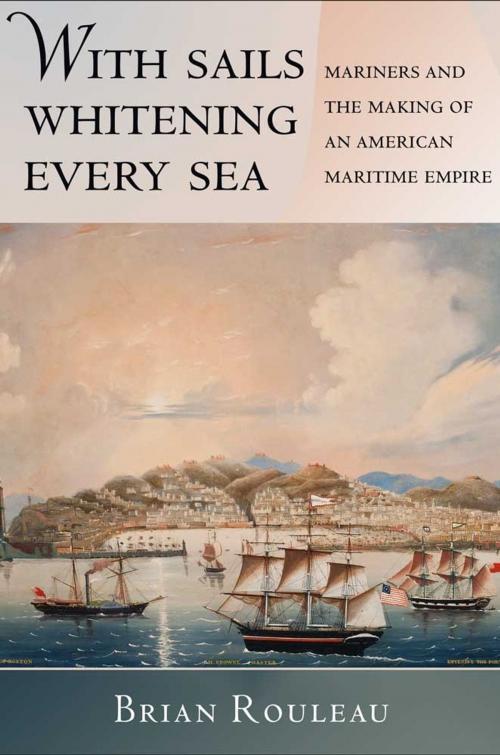With Sails Whitening Every Sea
Mariners and the Making of an American Maritime Empire
Nonfiction, History, Military, Naval, Americas, United States, 19th Century| Author: | Brian Rouleau | ISBN: | 9780801455070 |
| Publisher: | Cornell University Press | Publication: | May 6, 2015 |
| Imprint: | Cornell University Press | Language: | English |
| Author: | Brian Rouleau |
| ISBN: | 9780801455070 |
| Publisher: | Cornell University Press |
| Publication: | May 6, 2015 |
| Imprint: | Cornell University Press |
| Language: | English |
Many Americans in the Early Republic era saw the seas as another field for national aggrandizement. With a merchant marine that competed against Britain for commercial supremacy and a whaling fleet that circled the globe, the United States sought a maritime empire to complement its territorial ambitions in North America. In With Sails Whitening Every Sea, Brian Rouleau argues that because of their ubiquity in foreign ports, American sailors were the principal agents of overseas foreign relations in the early republic. Their everyday encounters and more problematic interactions—barroom brawling, sexual escapades in port-city bordellos, and the performance of blackface minstrel shows—shaped how the United States was perceived overseas.
Rouleau details both the mariners’ "working-class diplomacy" and the anxieties such interactions inspired among federal authorities and missionary communities, who saw the behavior of American sailors as mere debauchery. Indiscriminate violence and licentious conduct, they feared, threatened both mercantile profit margins and the nation’s reputation overseas. As Rouleau chronicles, the world’s oceans and seaport spaces soon became a battleground over the terms by which American citizens would introduce themselves to the world. But by the end of the Civil War, seamen were no longer the nation’s principal ambassadors. Hordes of wealthy tourists had replaced seafarers, and those privileged travelers moved through a world characterized by consolidated state and corporate authority. Expanding nineteenth-century America’s master narrative beyond the water’s edge, With Sails Whitening Every Sea reveals the maritime networks that bound the Early Republic to the wider world.
Many Americans in the Early Republic era saw the seas as another field for national aggrandizement. With a merchant marine that competed against Britain for commercial supremacy and a whaling fleet that circled the globe, the United States sought a maritime empire to complement its territorial ambitions in North America. In With Sails Whitening Every Sea, Brian Rouleau argues that because of their ubiquity in foreign ports, American sailors were the principal agents of overseas foreign relations in the early republic. Their everyday encounters and more problematic interactions—barroom brawling, sexual escapades in port-city bordellos, and the performance of blackface minstrel shows—shaped how the United States was perceived overseas.
Rouleau details both the mariners’ "working-class diplomacy" and the anxieties such interactions inspired among federal authorities and missionary communities, who saw the behavior of American sailors as mere debauchery. Indiscriminate violence and licentious conduct, they feared, threatened both mercantile profit margins and the nation’s reputation overseas. As Rouleau chronicles, the world’s oceans and seaport spaces soon became a battleground over the terms by which American citizens would introduce themselves to the world. But by the end of the Civil War, seamen were no longer the nation’s principal ambassadors. Hordes of wealthy tourists had replaced seafarers, and those privileged travelers moved through a world characterized by consolidated state and corporate authority. Expanding nineteenth-century America’s master narrative beyond the water’s edge, With Sails Whitening Every Sea reveals the maritime networks that bound the Early Republic to the wider world.















